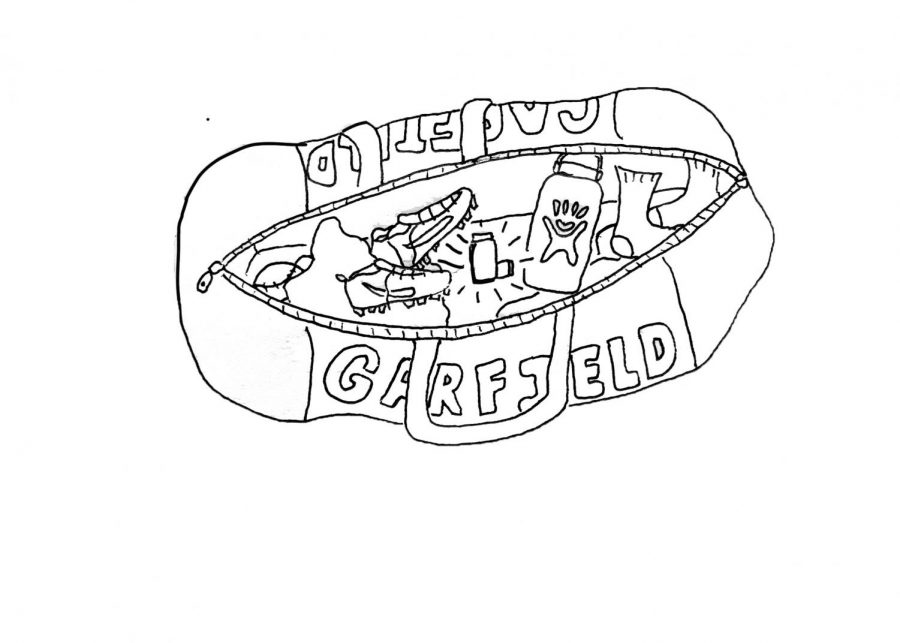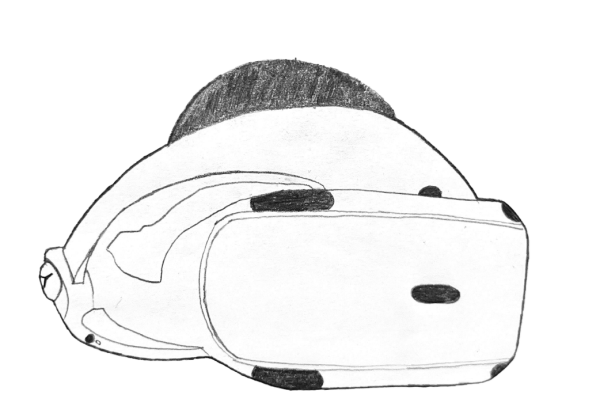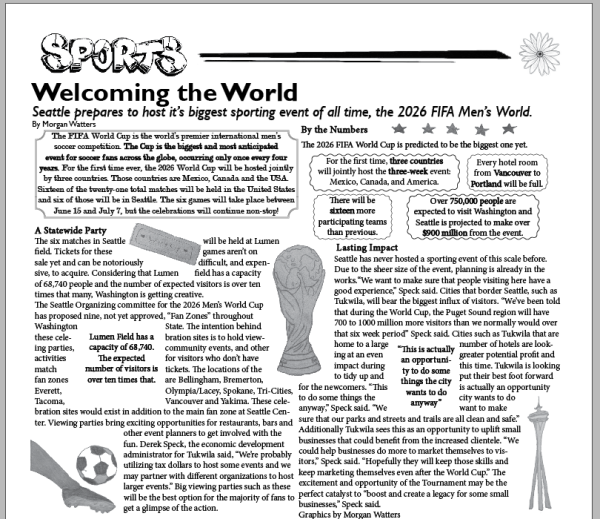Bad Respiration, Big Aspirations
Athletes with asthma at Garfield.
First, your chest tightens. Then, your lungs starts to wheeze. Suddenly, you can’t draw a breath. Now, run three miles.
For many athletes at Garfield, asthma and other respiratory illnesses are a day-to-day reality of playing a sport. While asthma is often seen as a relatively minor illness, this chronic condition can have severe consequences, especially for competitive and cardio-heavy sports.
Varsity cross-country runner Olivia Reichert has dealt with sports induced asthma for much of her high school athletic career.
“My chest starts to get really tight when I run, which is ironic that I do cross-country, because I have breathing problems and it’s a cardio sport,” said Reichert.
Cross-country is an especially difficult sport for people with respiratory issues. However, many bulldogs are not dissuaded.
“There’s a surprisingly large amount of people on cross-country who have asthma,” Reichert said. “I used to make fun of the girls with asthma like, why are you doing cross-country if you have asthma? But now here I am.”
Asthma can also be triggered by high-pressure situations and adrenaline. For those with asthma, unrelated stress– such as nerves before a big athletic competition— can trigger or inflame symptoms.
“It gets worse when I get nervous because it’s already like, your chest tightens up when you’re stressed, and then [the asthma] is on top of that,” said Reichart. “For Metros, it gets really bad.”
Asthma symptoms can lead to their own type of anxiety. For senior Kiley Foster, an intense sprint workout at soccer practice once lead to an asthma attack, which ballooned into something worse.
“I felt like I wasn’t breathing, which almost triggered a panic attack,” said Foster. “[Those are often connected] because it’s scary; you’re just …not breathing.”
Asthma attacks, wheezing, panic: now add a horse into the mix. For junior Sarah Elkan, asthma is a unique challenge in her chosen sport of dressage: what she describes as “fancy horse dancing.”
“I have chronic lung inflammation so my lungs at any given point only work at like 85%,” Elkan said. “It doesn’t give me asthma attacks, so I can always breath, but I can never breathe very well.”
Unlike cross-country or conventional team sports, it’s not teammates or coaches holding the athlete accountable; first and foremost is their steed.
”I’m constantly out of breath, but the horses have lungs the size of a toddler, so they can always just keep going,” said Elkan.
However, the individual nature of horse-riding has its benefits.
“[With horseback riding] I don’t feel like I’m letting anyone down beside myself, so I can go at my own pace,” said Elkan. “The horse is never going to be more tired than you are.” Although cardio and fitness are important for a horseback-rider, success is a collaborative athletic effort between rider and horse.
For cardio sports, coaches often downplay asthma as a mental block to be overcome, as opposed to the serious medical condition it can be.
Junior soccer player Julia D’amico explained how coaches sometimes perceive asthma as an excuse to avoid hard workouts. Although asthma may not always be taken seriously, it can have disastrous consequences if athletes push themselves, or are pushed by others, beyond their physical abilities.
“If I push myself too hard into an asthma attack I could actually stop breathing and die,” said D’amico. “So coaches shouldnt make people go past that, especially if they know their limits.”
Environmental factors have serious effects on asthma. Asthma is also closely correlated to race and class, as marginalized communities disproportionately are often shunted near sources of pollution like factories and highways.
Summer forest fires have clouded Seattle skies with smoke several times in the past couple years. While smoky air makes breathing difficult for everyone, for asthmatics, smoke and particulate matter in the air can be debilitating.
”When it’s smoky in the summer it makes my asthma really bad all the time,” said D’amico. “When I’m sitting down I can’t breathe, and when I start to play soccer I can’t even run around. I skip soccer practice when its super smoky because it won’t be good for my health.”
Although this past summer was far less smoky than the two summers before, this is a problem we can expect to recur and even intensify if regional temperatures and pollution continue to rise. Summer/fall sports programs may need to adapt in the future for the safety of players, and look for indoor practice alternatives.






